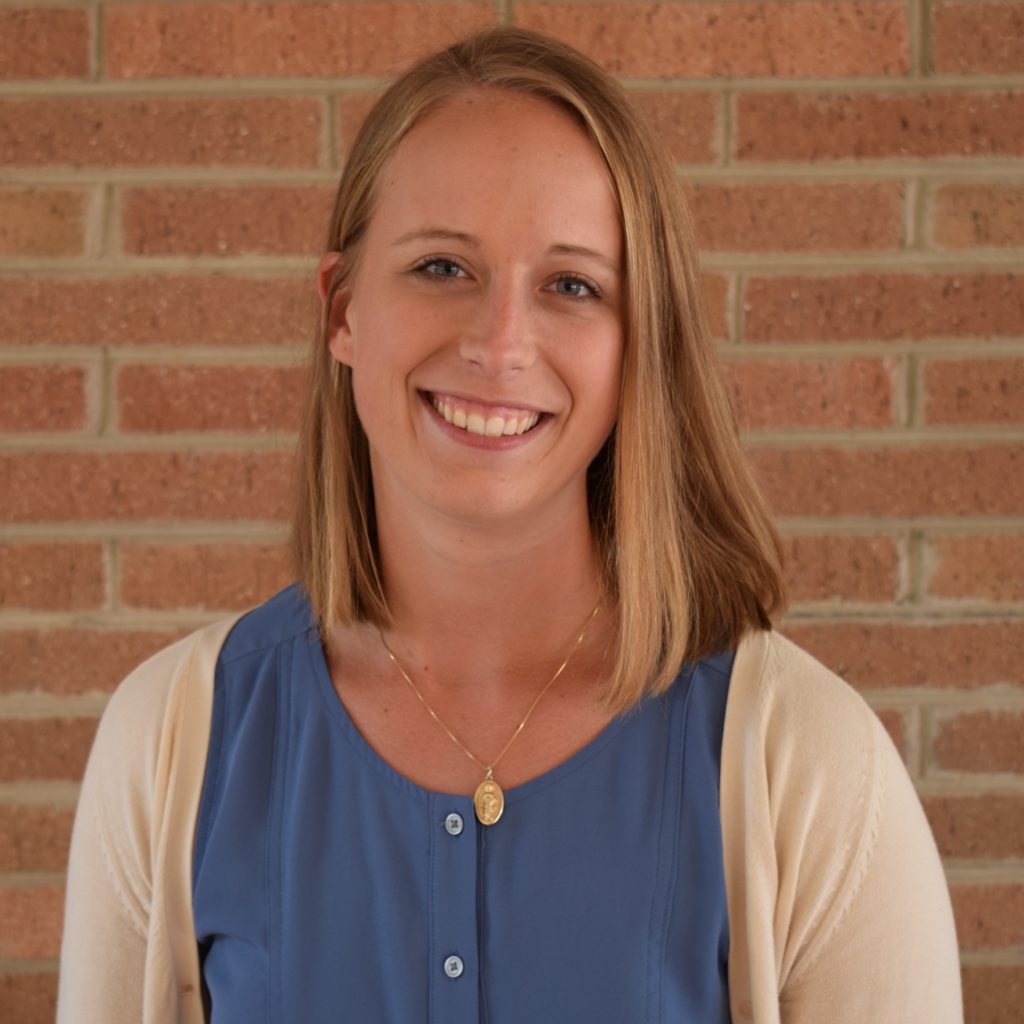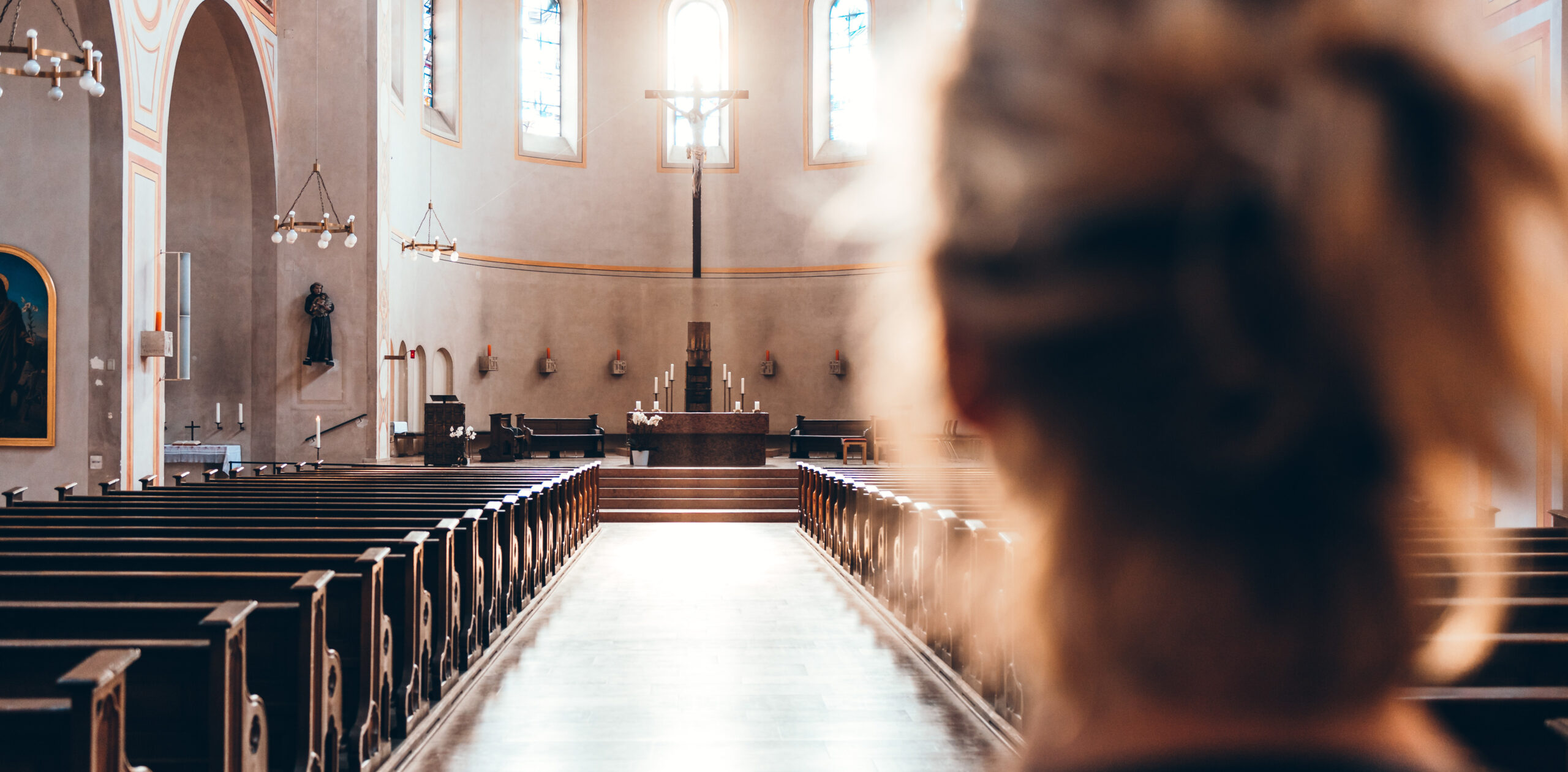During Lent, we spend a lot of time reflecting on how we can turn away from sin, attachments and distractions and give ourselves more to God. Reflecting on our weaknesses can make us feel insecure or vulnerable, or certainly timider before God in prayer. After committing the first—or original—sin, Adam and Eve express this fear and insecurity before God.
“But the Lord God called to the man, and said to him, ‘Where are you?’ And he said, ‘I heard the sound of thee in the garden, and I was afraid, because I was naked; and I hid myself.
Genesis 3:9-10
Adam is experiencing the consequence of sin for the first time, an experience we have become all too familiar with. What happens? He is afraid of God because of his guilt; he is ashamed that he has been discovered, exposed, so he hides his nakedness from the Father. His decision to sin damages the trusting relationship he has with the Father. He no longer feels safe and secure in the Father’s presence and instead feels vulnerable.
Naked and Ashamed
Realistically, however, Adam has always been naked since his creation, so he should not feel exposed or insecure before the Father. God responds, feigning surprise, to Adam’s admission:
“He said, ‘Who told you that you were naked? Have you eaten of the tree of which I commanded you not to eat?'”
Genesis 3:11
The Father is not angered that Adam has discovered he has no clothes on. The Father is angered that Adam is ashamed to be in his presence, that Adam has sinned and now sees his own nakedness as a threat rather than a gift. The evil serpent has twisted and distorted Adam’s relationship with his Father so that Adam no longer sees nakedness—vulnerability—as a good thing but rather as a threat to his life.
Reaction to Personal Sin
We have to admit that we all feel as Adam does when we sin. We feel guilty for our sin, we are ashamed, and we want to hide from God. Let us not trivialize this sentiment! We all react to our guilt in unhealthy ways and it affects our relationships with others, with ourselves, and especially with God. We need to be honest with ourselves and truly examine our hearts.
How do I react to sin? Do I busy myself at work, with the kids, or with doing a million good works? Do I hide in my prayers, doing or saying a lot in prayer, constantly reading or starting new spiritual initiatives but never completing any? Do I hide my troubles from the people in my life who should or could support me and give me guidance? Am I addicted to anything? Am I afraid of God’s will, of being a mess before him? Do I think God is hiding from me? Do I think God is not pleased with me or with my work? Do I think God wants me to suffer or that his will is going to be too difficult? I can keep going … but I think you get the idea. We hide from God a lot.
What is the remedy? The answers lie in the person of Jesus Christ and the manner in which he chose to save us, in complete and total vulnerability. The Word was made flesh as a fragile baby, he agreed to toil on this earth, suffer ridicule and persecution, and eventually die a brutal death of crucifixion. As if this wasn’t enough, he chose to remain with us not as the Risen Savior in his glorified body, but as the Host.
The Vulnerability of the Host
Have you ever considered the vulnerability of the Host? You probably have considered it, even if subconsciously, in the careful manner that you receive the Host, or as you watch the priest carefully purify the sacred vessels after Communion. To be even more explicit, is there anything more vulnerable than the Host? I cannot think of anything. The God of the universe, the Lord and Creator of all, chooses to contain himself in a little piece of bread. He makes himself completely vulnerable—able to be wounded. In the host, he can be completely ignored, misunderstood, desecrated, ridiculed, and abused. And he silently endures these wounds.
Moreover, he does all of this because we are not able to be that vulnerable. Because of sin, we are too afraid to be that vulnerable. Nevertheless, it is through this vulnerability that we encounter the Father and receive the remedy for our sin. We receive Communion—communion with the Father—through the vulnerability of the Son. If we truly want the Eucharist to change our lives and heal our hearts then we have to allow ourselves to be vulnerable. We have to stop hiding from God, from others, and from ourselves.
As Adam is a perfect mirror of our own current, sinful nature, Mary is a perfect mirror of our future, redeemed nature. God called out to Adam who was in hiding, but Gabriel greets Mary who was continually present to the Father in her daily life. Both perfectly recognize their lowliness and vulnerability before the presence of God, but only one responds with perfect faith and trust. Only one of them recognizes this vulnerability as a gift, as a way for the divine life to enter in and find a dwelling place. Only one, Mary, allows God to be vulnerable with her, to meet her in her vulnerability, and to find in that meeting place the true power of God.
You May Also Like:
Symbolism in the Good Friday Narrative, Down to the Last Detail [Dr. Edward Sri podcast]
Connections between the Annunciation, Creation, and Good Friday
What Makes Good Friday Good?
Scriptural Rosary for Good Friday
The Way of the Cross: Praying the Psalms with Jesus [book]

Caroline Harvey is the associate communication director for the Archdiocese of Milwaukee. Prior to working at the archdiocese, Caroline worked in various ministry positions throughout southeast Wisconsin, focusing on teaching and discipleship. She is currently pursuing a doctor of ministry degree in liturgical catechesis from the Catholic University of America. She has a master of arts degree in biblical theology and a bachelor of arts in communications media from John Paul the Great Catholic University.
Featured image by pixundfertig (pixabay.com) sourced from needpix.com






Ascension is a buoyant, guiding light. The struggle with catechesis for middle schoolers is very real. The world is scarier by the week. Ascension gives catechists hope through beautifully written content that can be shared through teaching.